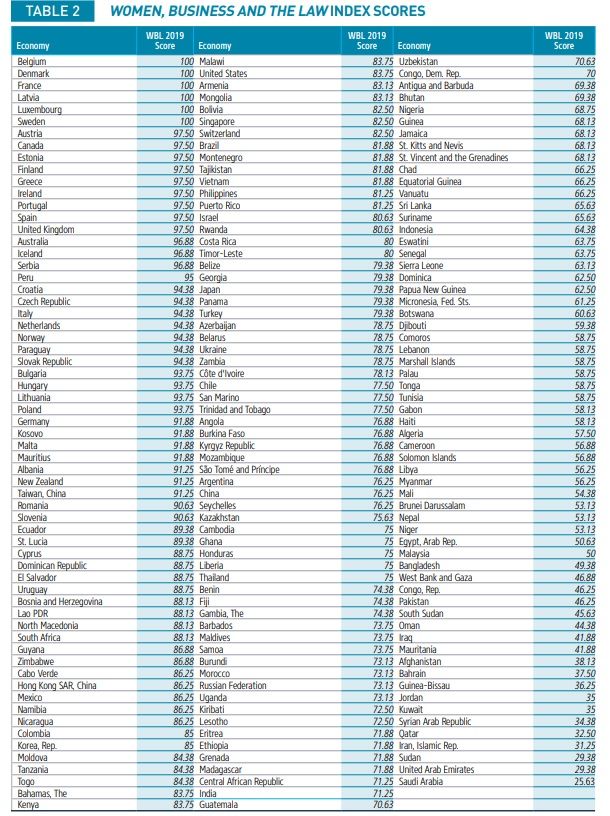News
Denmark top dog for gender equality in the labour market
This article is more than 6 years old.
Danes scored a perfect 100 on the 2019 Women, Business and the Law index

Onwards and upwards ladies (photo: Pixabay)
According to the newly-published 2019 Women, Business and the Law index, women in Denmark have equal legal rights across the labour market.
Published annually by the World Bank, the index (here in English) ranked Denmark top in the world along with five other economies: Belgium, France, Latvia, Luxembourg and Sweden.
“This perspective yields interesting results. Six economies—Belgium, Denmark, France, Latvia, Luxembourg and Sweden—score 100 in the Women, Business and the Law index, meaning they give women and men equal legal rights in the measured areas. A decade ago none of these economies scored 100, indicating they all reformed over the past ten years,” the report found.
Denmark scored a perfect 100 across the eight parameters: Going Places, Starting a Job, Getting Paid, Getting Married, Having Children, Running a Business, Managing Assets and Getting a Pension.
READ MORE: Public sector still struggling with leadership inequality
Arabian Peninsula struggling
Austria, Canada, Estonia, Finland, Greece, Ireland, Portugal, Spain and the UK followed the top six with scores of 97.5, just ahead of Australia, Iceland and Serbia, which had scores of 96.88.
Other notables included Norway (94.38), Germany (91.88), South Africa (88.13), Mexico (86.25), South Korea (85.00), the US (83.75), Brazil (81.88), Japan (79.38), China (76.25), Russia (73.13), India (71.25), Nigeria (68.75), Indonesia (64.38) and Pakistan (46.25).
Saudi Arabia finished dead last on the index with a score of 25.63, preceded by the UAE and Sudan (both 29.38), Iran (31.25) and Qatar (32.5).











































